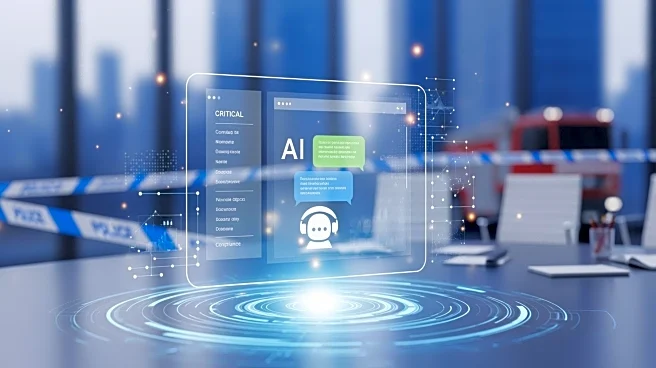What's Happening?
San Jose is advancing its use of artificial intelligence by proposing a generative AI platform for its 7,000 city employees. This initiative aims to automate repetitive tasks such as report writing, data analysis, and document summarization, allowing
employees to focus on more complex responsibilities. The city has previously implemented successful AI pilots, including a bus route tool and language translation improvements. Mayor Matt Mahan emphasizes the potential of AI to increase productivity by 10-20% across departments. The city has also collaborated with San Jose State University to train employees in AI tools, resulting in significant time and cost savings.
Why It's Important?
The integration of AI in San Jose's municipal operations represents a significant shift towards modernizing public services. By automating routine tasks, the city aims to enhance efficiency and service delivery, potentially setting a precedent for other municipalities. This move could lead to improved public services and cost savings, benefiting residents and the local government. However, concerns about AI replacing human jobs persist, with union representatives emphasizing the need for safeguards to protect workers' roles. The initiative highlights the balance between technological advancement and job security in public sector employment.
What's Next?
As San Jose continues to implement AI solutions, the city plans to address concerns from union representatives and employees about job security. Upcoming contract negotiations will likely focus on establishing guidelines to ensure AI supports rather than replaces human workers. The city aims to expand its AI training programs and further integrate AI into various departments, potentially influencing other cities to adopt similar technologies. Monitoring the impact of AI on productivity and employee satisfaction will be crucial in determining the long-term success of this initiative.
Beyond the Headlines
The ethical implications of AI in public services are significant, as the technology must be used responsibly to avoid misinformation and ensure accuracy. The city must address potential biases in AI systems and ensure transparency in decision-making processes. Additionally, the cultural shift towards AI-driven work environments requires careful management to maintain employee morale and public trust. San Jose's approach could serve as a model for other cities navigating the integration of AI in government operations.
















